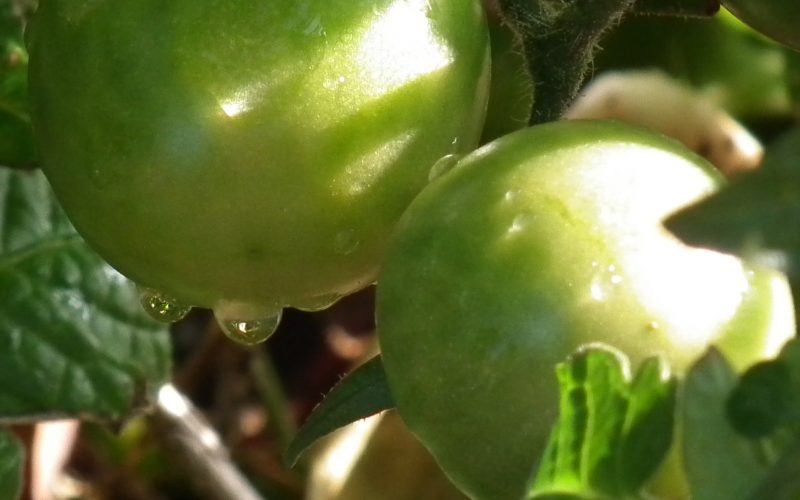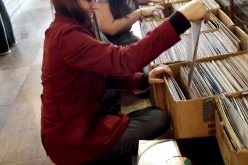
This weekend, March 2-3, at the Global Campus Center on the Fayetteville Downtown Square, foodies, gardeners and farmers are gathering to celebrate all things locally grown. Because the goal of the Dig In festival is to grow and support the local farming and gardening communities, a majority of the events are free.
There is, however, a suggested donation amount of $5 for each class or movie you attend. Weekend passes are available for $30, and tickets for a special tasting event will be sold for $15. “That’s our foodie event,” says Dig In organizer Leigh Wilkerson. The tasting will feature food by Brick House Kitchen chef David Lewis and will be held at the Fayetteville Town Center at 5 p.m. on Friday. (For a detailed list of activities, visit the Dig In Festival website.)
At the festival, attendees will be encouraged to sample local food, take classes and view documentaries to learn more about the food industry and the benefits of supporting the local agricultural community. The festival also provides new gardeners with the tools to get started, if they are so inclined to dig in on their own time.
The Fayetteville Community Garden Coalition has teamed up with the Dig In Food Festival to offer a community seed swap. Like other events, there is a suggested donation — $5 or gardening tools — but Katy Deaton-Ochoa says that the Seed Swap is “absolutely free.” The FCGC received many generous donations from seed companies, and with 10,000 seeds, there is plenty to go around.
“Almost all of the seeds we’ve received are heirloom seeds or open-pollinated, which means they can be saved by gardeners,” she said.
For new gardeners, who are unsure how to save seeds, Herb Culver, owner of Bean Mountain Farms, will be teaching a class on how to preserve seeds after the first harvest. Culver says the key to consistently growing healthy crops is being able to trust the variety of seed, which can be difficult when the seeds are purchased from a commercial seed supplier or created as a hybrid.

At the Dig In Festival this weekend, you can swap seeds or simply take some home to get started on your first garden!
“A hybrid seed may produce a really nice first generation of crops, but the second is a mixed bag,” Culver explains. “In order for the seed industry to be the most profitable, they have to create a tomato that can grow in any state in any conditions. They select for something that ends up being bred for mediocrity.”
On the other hand, heirloom seeds have been bred, either by a family or community, over many generations to enhance a particular trait or to grow well in a specific climate. For heirloom gardeners, the goal of swapping seeds is to preserve genetic diversity and to select seeds from plants that survive and thrive in the local bio-system.
Brian Campell, a professor at the University of Central Arkansas explains that choosing the right seed is especially important for those who rely on food production, not only for sustenance, but also for income.
“Small-scale farmers have very little wiggle room when it comes to making a living, so they can save money on seeds and inputs if they use well-adapted local open-pollinated varieties. They can save the seeds, meaning they don’t have to spend on seeds the next year, and because the seeds thrive in local conditions, they won’t need to spend as much on irrigation and inputs, like fertilizers and pesticides.”
The tradition of raising heirloom varieties has roots that can be traced back to the early days of civilization; however, it was only within the past century that differentiation was needed to distinguish between open-pollinated and hybrid seeds. With the large-scale cultivation of crops has also come a gap between mainstream society and food production.
Local farmers and gardeners are working to bridge this gap, and educators like Campbell are working to introduce the younger population to the basics of agriculture.
“The younger generations have become removed from food production, and Seed Swaps provide an excellent opportunity for the youth who are interested in living ‘green’ to meet older folks who can teach them how to garden and grow or wild harvest their own foods and medicines,” he says.
Campbell’s production com-pany, Ozarkadia Films, creates documentaries that portray sustainable initiatives, both traditional and contemporary, in the Ozark Highlands. The Ozarkadia film, “Seed Swap in the Ozarks” will be shown during the Dig In Festival.
[youtube]http://www.youtube.com/watch?v=xUZ38FJfIhE[/youtube]
Like the genes passed down from generation to generation of kale or tomato, so is the tradition of cultivation passed down in families and communities. Those behind the Dig In Festival express a responsibility to their ancestry, their community and generations to come.
“[Gardening] is such a feeling of connection, not just to the land, but to this incredible history of doing something that our ancestors have done for as far back as we go,” says Wilkerson. “There is nothing like gardening that will give you respect for what farmers do. It is very challenging to grow food.”
“Having a community that supports its local farmers means those farmers are there to grow healthy food for us. We want the kind of community that is excited about food grown here and that understands that it’s bigger than a trend.”










